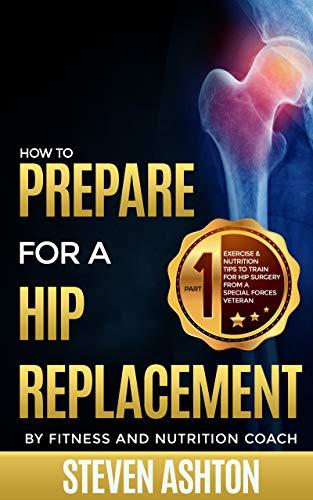Rachael is a freelance healthcare writer and critical care nurse based near Cleveland, Ohio.
Learn about our editorial processUpdated on December 17, 2020Medically reviewedVerywell Health articles are reviewed by board-certified physicians and healthcare professionals. Medical Reviewers confirm the content is thorough and accurate, reflecting the latest evidence-based research. Content is reviewed before publication and upon substantial updates. Learn more.byScott Sundick, MD Medically reviewed byScott Sundick, MDScott Sundick, MD, is board-certified in general surgery and vascular surgery. Since 2012, he has practiced with The Cardiovascular Care Group in New Jersey.
Learn about our Medical Review BoardTable of ContentsView AllTable of ContentsThere are several things you need to keep in mind as you prepare for a total hip replacement surgery. You might need to adjust some of your medications, like blood thinners. And you need to prepare your home so it will be easy and safe for you to get around as you are recovering.
Total hip replacement, also known as total hip arthroplasty, is the removal of the “ball and socket” of the original hip joint, and replacement with a prosthesis (artificial joint). This surgery is usually done when the hip joint has severely deteriorated and after other therapies have not been effective.
Because it's a major procedure, you will have to plan for a hospital stay and a long recovery period. Keep reading to find out how you will prepare for a total hip replacement.
Location
On the first day, you will arrive at the hospital and begin preparation for surgery. Total hip replacement is not usually done as an outpatient procedure or in a freestanding surgery center.
When you have a total hip replacement, you should expect to be in the hospital for one to three days, usually staying two nights as an inpatient. In the days right after your surgery, your healthcare provider will need to monitor your heart rate, blood, pressure, and oxygen levels.
You will be examined for complications like blood clots or excessive bleeding from the surgery—these issues should be identified and treated right away. Your healthcare providers and nurses will help you control your pain and advise you on how to continue your recovery at home.
What to Wear
You may be asked to bathe with a special soap at home before you arrive for surgery. Once at the hospital, your skin will be cleaned again to prevent infection.
One of the first things you will do after arriving at the hospital is to change out of your regular clothes and into a hospital gown.
You can bring a change of clothes for after the surgery, but since you will stay at the hospital for several days, you can have someone bring you fresh clothes when it’s time to leave.

Food and Drink
In the days before your surgery, your healthcare provider will give you specific instructions about how to prepare. Your healthcare provider should advise you to:
If you have medications that you need to take, it's usually ok to take medications with a sip of water, but be sure to check with your healthcare provider about this first.
Eating or drinking before surgery can cause complications with anesthesia. If you have food or drink in your stomach, it can increase the chances you could vomit and the liquids may enter your lungs—a condition called aspiration.
Why You Can't Eat or Drink Before SurgeryMedications
It is very important to discuss your regular medications with your healthcare provider well before the day of surgery. Some medications such as blood thinners, can increase the risk of serious surgical complications. These or other medications may have to be adjusted or stopped.
Make sure you carefully follow instructions about stopping or adjusting medications before your surgery. Some medications you might need to stop taking in the days or weeks prior to your surgery include:
Blood Thinners and SurgeryWhat to Bring
You make also want to pack the following items for your hospital stay:
Do not bring valuables or jewelry with you to the hospital.
Before your surgery, you might need to make some lifestyle changes to ensure a good recovery. If you smoke, you healthcare provider will ask you to quit as soon as possible before surgery—at least two months in advance is ideal. Tobacco use can interfere with your ability to heal.
Quitting Smoking Can Improve Surgical OutcomeIf you have dental problems, you should get them treated at least two weeks before your surgery.
Dental procedures can increase the chances that bacteria will enter your bloodstream. This could lead to an infection that could reach your new hip joint. Be sure to tell your healthcare provider if you need any urgent dental procedures in the weeks before your surgery.
You may also want to think ahead and make a few preparations at home to help you after your surgery. These may include:
After your surgery, you will have limited mobility. Plan to have a friend or relative stay with you, ideally for the first few days or week. If you don’t have anyone who can stay with you, tell your healthcare provider, and they may be able to arrange help.
You will also need someone to drive you home when you are discharged from the hospital, and someone to drive you to therapy and follow-up appointments.
A Word From Verywell
A hip replacement is a major surgery. You may be experiencing a lot of pain before your surgery, but keep in mind that this surgery is very involved, and recovery will take a long time. In the end, you should have less pain after your hip replacement is healed, but making the proper preparations before your surgery can help improve your healing and overall recovery.
Was this page helpful?Thanks for your feedback!Sign up for our Health Tip of the Day newsletter, and receive daily tips that will help you live your healthiest life.
You're in!Thank you, {{form.email}}, for signing up.
There was an error. Please try again.









